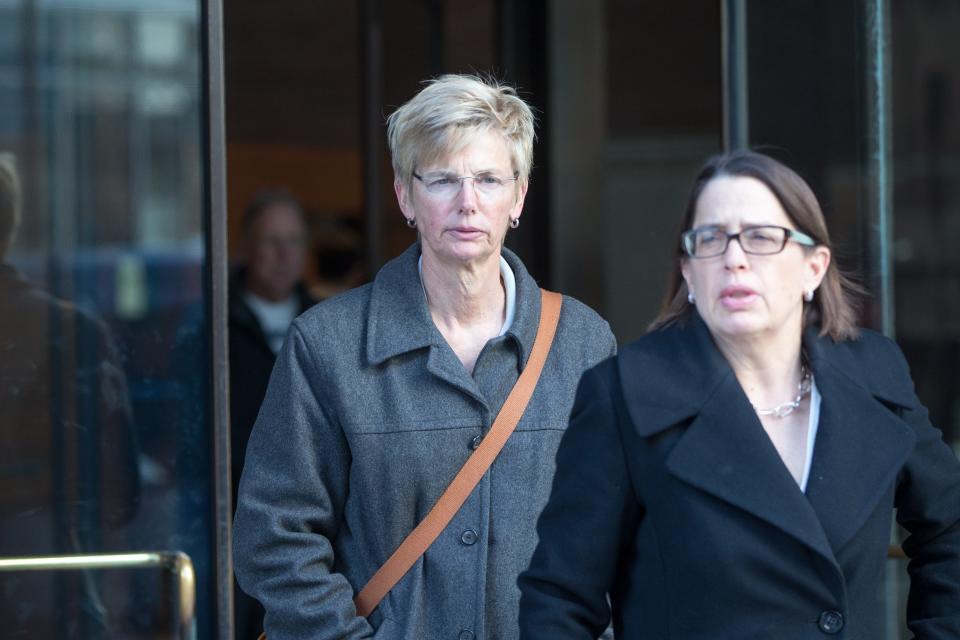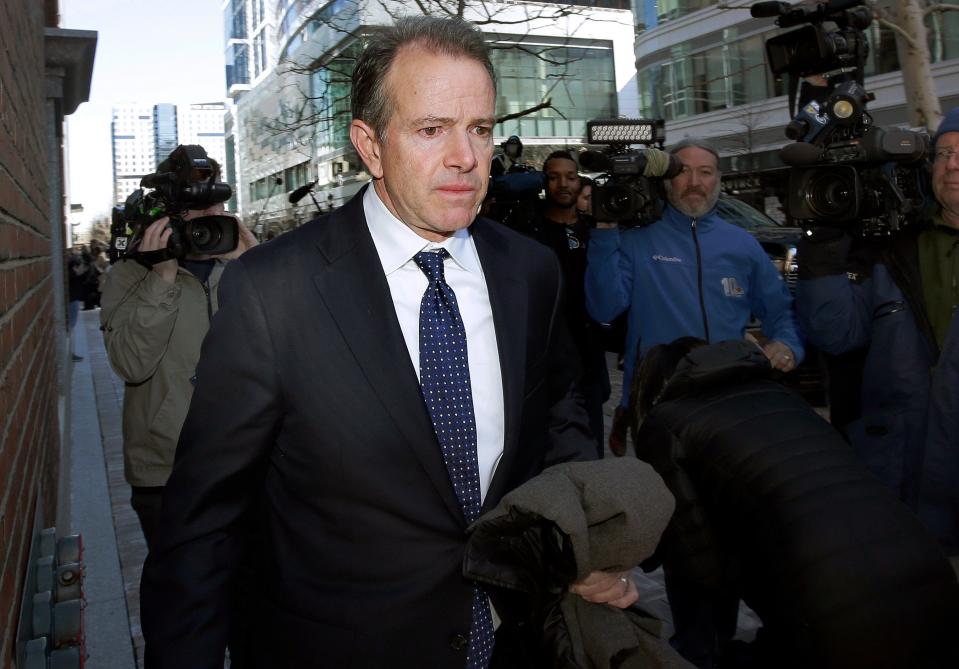Coaches in college admissions scam call charges an 'unprecedented' overreach of mafia law
BOSTON – Attorneys for former college coaches, an ex-university athletics official and other defendants said their clients had no relationship or knowledge of each other's actions in a vast criminal enterprise led by Rick Singer.
Their arguments came in a series of motions filed this week seeking the dismissal of racketeering charges in the "Varsity Blues" college admissions scandal.
An attorney for Donna Heinel, former senior associate athletic director at the University of Southern California, wrote in a memorandum that each defendant's actions were "siloed," "parallel" and "uncoordinated," warranting dismissal of the government's case. Other attorneys joined her motion.
Consider this: 'What makes your child entitled?' Judge takes on privilege as she sentences parents in college scam
In March, prosecutors charged coaches and other alleged co-conspirators of Singer, the scheme's mastermind, under the federal Racketeer Influenced and Corrupt Organizations Act, or RICO, in the same indictment. Singer, a college consultant, operated a front called the Key Worldwide Foundation.
The Justice Department has historically used RICO to prosecute the Mafia and other organized gang activity. In the admissions case, defense attorneys countered that their clients' coordination was limited to Singer, not each other, making the case an "unprecedented attempt by the government to wildly expand the application of the RICO statute."
"At most, the allegations in the indictment set forth a 'hub-and-spoke' structure with Singer occupying the hub and Heinel and the other co-defendants as the spokes, with no common rim linking the individual spokes together," Nina Marino, Heinel's attorney, wrote. "While each defendant may have been working with Singer, there is nothing connecting each defendant to the others."
She said, "The separate and unconnected spokes are insufficient for a RICO Conspiracy – connection with the hub is not enough, there must be a rim."
Lawyers representing Jovan Vavic, former water polo coach at USC, and Niki Williams, a former test administrator for ACT and SAT, filed their own motions to dismiss and also joined Heinel's motion. Former Wake Forest University volleyball coach William Ferguson and former Georgetown tennis coach Gordon Erst joined the motions of other defendants.

A spokeswoman for the U.S. Attorney's Office declined to comment on the filings. The government has until Nov. 19 to respond in court.
Heinel and the coaches are accused of accepting bribe payments from Singer to tag children of parents who paid into Singer's scheme as athletic recruits to get them into college. Williams is accused of taking bribes from Singer to help facilitate a test-cheating plot in which someone fixed answers on college entrance tests for students whose parents paid Singer.
Marino wrote there was "no common purpose" between the recruitment and testing schemes, arguing the alleged actions of all the defendants were conducted individually.
"At best the indictment alleges that individuals shared the common purpose of getting students into a university – singular," her memo says. "The alleged actions of the defendants, in this case, were siloed, and not performed for the continuing unit of the Key Enterprise."

None of the defendants was aware of the actions of others, the memo continues, including Heinel and Laura Janke, former assistant USC women's soccer coach who pleaded guilty to helping set up fake athletic recruits for Singer's clients.
"There is no allegation, for example, that Heinel agreed or knew that Janke was preparing fake athletic profiles for students or facilitating the admissions of student-athletes into Stanford University, USC or Yale," the court document says. "Similarly, Gordon Ernst, the head tennis coach at Georgetown University, has no alleged purpose to admit recruited athletes to Yale University, USC, the University of California at Los Angeles, Wake Forest University, Stanford University, the University of Texas at Austin, nor the University of San Diego."
Prosecutors alleged Singer's operation represented an enterprise based on the association of co-conspirators as opposed to them being part of a legal entity. The defense attorneys said the government, by singling out a "pattern of racketeering activity" among the defendants, failed to show how the individual defendants function as a single unit.
College admissions scandal: Felicity Huffman reports to prison to begin serving time
More 'Varsity Blues' case: Former ACT/SAT test administrator flips, pleads guilty
Janke, former USC women's soccer coach Ali Khosroshahin, Singer's bookkeeper Steven Masera and ACT/SAT test administrator Igor Dvorskiy are charged with racketeering in the same indictment. All four pleaded guilty in deals with prosecutors. They await their sentences.
In all, 24 out of 52 people charged in the "Varsity Blues" scandal pleaded guilty to federal crimes. Nine parents, including actress Felicity Huffman, and one coach, former Stanford sailing coach John Vandemoer, have been sentenced by a judge for their crimes.
Wednesday, Marjorie Klapper, a jewelry entrepreneur from Menlo Park, California, was sentenced to three weeks in prison for paying Singer $15,000 to have someone fix her son's ACT test.
Nineteen parents, including actress Lori Loughlin, are fighting charges in the college admissions scheme, and defense attorneys are going through millions of pages of evidence turned over by the government. A deadline to file their motions to dismiss won't be set until January, pushing possible trials well into 2020.
Reach Joey Garrison on Twitter @Joeygarrison.
This article originally appeared on USA TODAY: College admissions scandal: Coaches oppose anti-gang law prosecution

